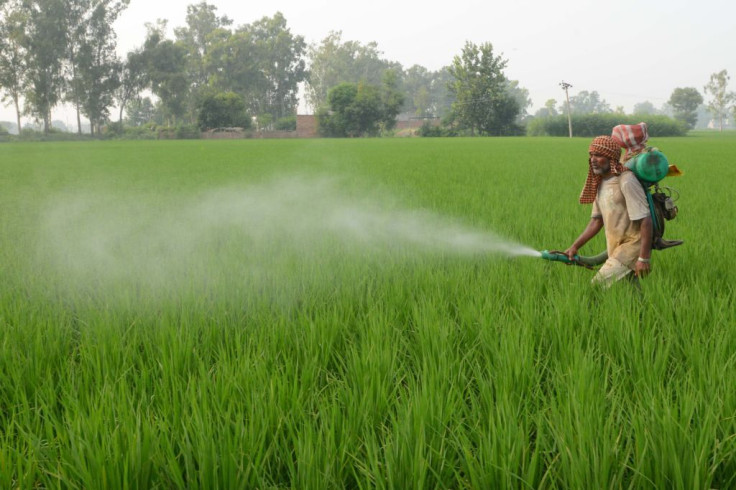Global Pest Population Could Increase As Climate Changes, Affecting Staple Crop Yields

Global warming, where greenhouse gases trap solar radiation and warm the planet, is known to have some drastic effects, including the melting of ice sheets. Scientists are working on ways to deal with it, but if a new study is anything to go by, we may have another global warming-related problem to handle — pests.
According to the research, the gradual increase in temperature could bolster the population of pests, which may affect staple crop yields in some of the most productive agricultural parts of the world.
"Climate change will have a negative impact on crops," Scott Merrill of the University of Vermont, a co-author of the work, said in a statement. "We're going to see increased pest pressure with climate change."
Merrill and team found the threat of pests after conducting a detailed study of those insects that are known to attack the common staple crops such as rice, wheat, and maize. They subjected the creatures to different temperature levels to see how they would respond to global warming.
The findings of the work revealed as Earth warms, the population of pests, as well as their ability to eat, would increase.
"When the temperature increases, the insects' metabolism increases so they have to eat more," Merrill added. "That's not good for crops."
More worryingly, the group found the increase in the population of pests would be most in temperate regions, where some of the most productive agricultural zones are located.
“Temperate regions are not at that optimal temperature [for the insects], so if the temperature increases there, populations will grow faster," Merrill added in the statement. "But insects in the tropics are already close to their optimal temperature, so the populations will actually grow slower. It's just too hot for them."
Every degree of warming will increase the loss of staple crop yields by 10 to 25 percent. This indicated a mere 2-degree increase in global average temperatures could lead to a whopping loss of 213 million tons of the three crops, as per initial estimates.
The warming-triggered pest attack is expected to hit the United States, France, and China – the leading producers of wheat, rice and maize – hardest among many other countries. These three crops make up 42 percent of the direct calories consumed by people across the globe, and a decline in their yields on such a large scale could lead to famine or even conflicts.
"There are a lot of things richer countries can do to reduce the effect, by increasing pesticide use or expanding integrated pest management strategies," Merrill concluded. "But poorer countries that rely on these crops as staple grains will have a harder time."
The study titled, “Increase in crop losses to insect pests in a warming climate,” was published in journal Science.
© Copyright IBTimes 2025. All rights reserved.





















